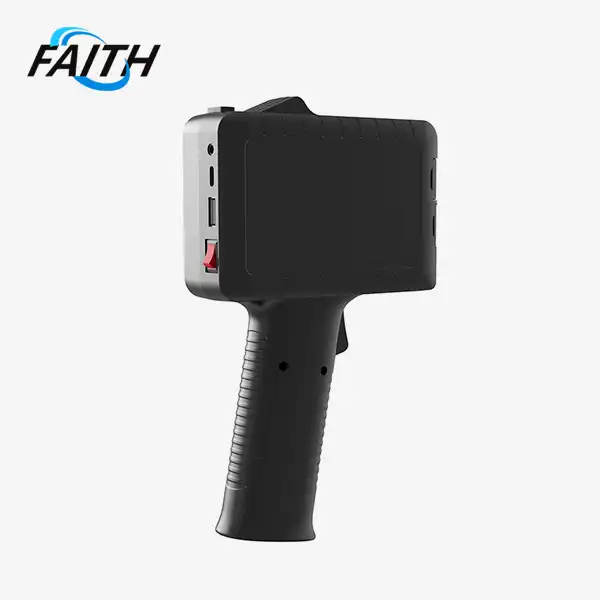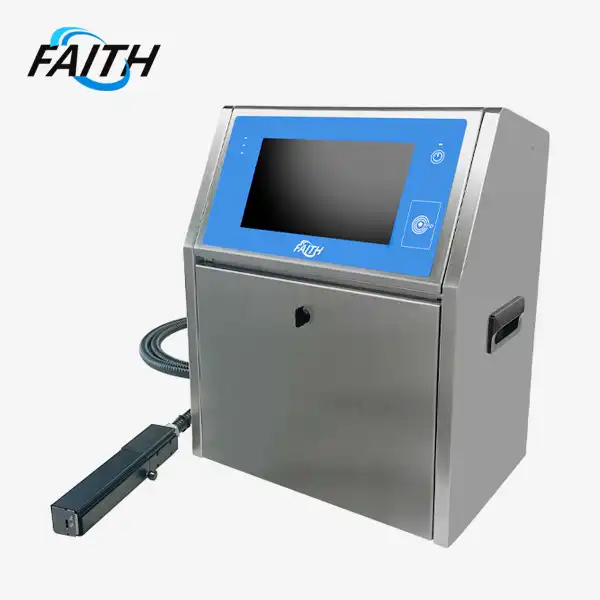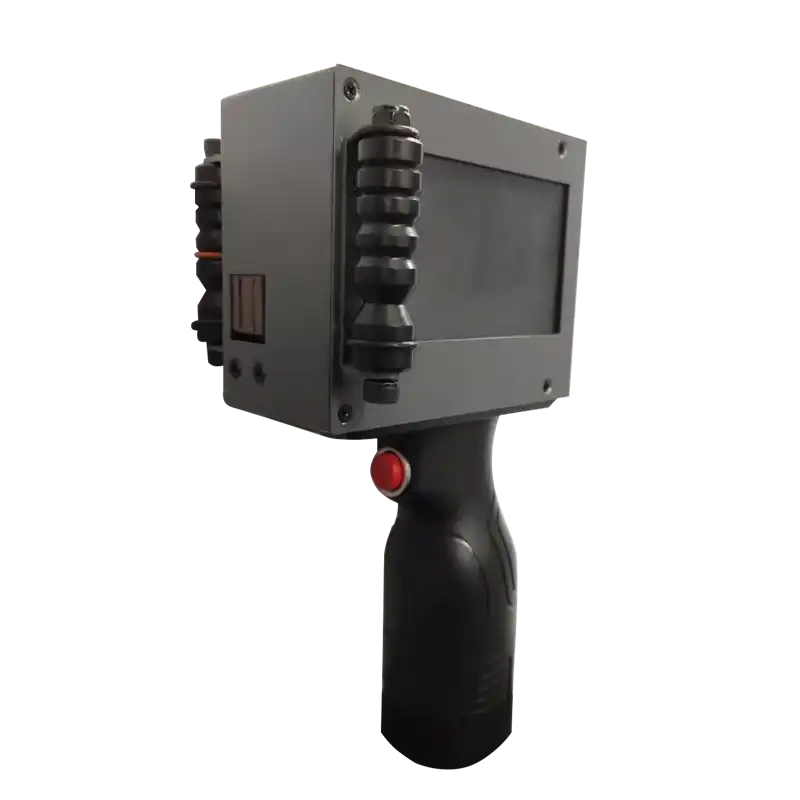Reliable Wholesale Inkjet Printers for High-Volume Needs
In the fast-paced world of industrial printing, reliable wholesale continuous inkjet printing solutions are essential for businesses with high-volume needs. These printers offer unparalleled speed, versatility, and cost-effectiveness for various industries, from food packaging to automotive parts. With cutting-edge technology and robust features, wholesale inkjet printers deliver high-quality, consistent results even in demanding production environments. This article explores the benefits, applications, and key considerations for choosing the right wholesale inkjet printer to meet your business's specific requirements.
The Power of Continuous Inkjet Technology in High-Volume Printing
Continuous inkjet (CIJ) printing technology has revolutionized the industrial coding and marking sector. This non-contact printing method offers a myriad of advantages for businesses dealing with high-volume production lines. CIJ printers are designed to deliver exceptional performance, reliability, and versatility across a wide range of applications.
Unmatched Speed and Efficiency
One of the most striking features of wholesale continuous inkjet printers is their remarkable printing speed. With the ability to reach speeds of up to 576m/min, these printers can keep pace with even the fastest production lines. This high-speed capability ensures that your coding and marking processes never become a bottleneck in your manufacturing operations.
Moreover, CIJ printers are equipped with advanced features that contribute to overall equipment effectiveness (OEE). By reliably encoding every product, these printers help minimize downtime and reduce the risk of errors or missed marks. This level of consistency is crucial for maintaining efficient production flows and meeting stringent quality control standards.
Versatility in Substrate Compatibility
Wholesale continuous inkjet printers excel in their ability to print on a diverse range of materials. Whether you're working with cartons, plastics, metals, glass, or even electronic components, CIJ technology can deliver clear, durable marks. This versatility makes these printers an ideal solution for businesses that handle multiple product lines or frequently change their packaging materials.
The adaptability of Standard CIJ printers extends to their ink formulations as well. Depending on your specific needs, you can choose from a variety of ink types, including:
- High adhesion inks for challenging surfaces
- Migration-resistant inks for food packaging
- High-temperature resistant inks for industrial applications
- Specialized inks for glass and other unique materials
- Food-grade inks for direct product marking
- Oil-resistant inks for automotive and industrial parts
This wide range of ink options ensures that you can achieve optimal print quality and durability regardless of your specific application requirements.
Advanced Printing Capabilities
Wholesale faith printers offer sophisticated printing capabilities that go beyond simple text and date codes. These machines can produce a variety of marking types, including:
- Text in multiple fonts and sizes
- Date and time stamps
- Logos and brand marks
- QR codes for enhanced traceability
- Barcodes for inventory management
- Serialization data for product tracking
With font options ranging from 5x6L to 32x32B, these printers can accommodate various coding requirements, from small, discreet marks to large, easily readable prints. The ability to print up to five lines of text further enhances their flexibility, allowing for more comprehensive product information to be conveyed when necessary.
Optimizing Production with Wholesale Inkjet Printers
Integrating wholesale continuous inkjet printers into your production line can significantly enhance your overall manufacturing processes. These printers offer a range of features and benefits that contribute to improved efficiency, reduced costs, and enhanced product quality.
Streamlined Operations and Reduced Downtime
Wholesale CIJ printers are designed with ease of use and minimal maintenance in mind. Their compact size (typically around 404mm x 282mm x 524mm) allows for easy integration into existing production lines without requiring significant space modifications. The 10.1-inch screen provides a user-friendly interface, simplifying printer operation and reducing the learning curve for operators.
These printers also boast impressive uptime, with many models offering continuous operation capabilities. Features such as auto-cleaning systems and extended service intervals help minimize the need for manual maintenance, reducing downtime and increasing overall productivity.
Enhanced Traceability and Quality Control
In today's regulatory environment, product traceability is more important than ever. Wholesale continuous inkjet printers play a crucial role in implementing effective track and trace systems. By consistently applying clear, readable codes to each product, these printers enable businesses to maintain detailed production records and quickly identify and isolate any quality issues that may arise.
The ability to print dynamic data, such as date codes, lot numbers, and serialization information, further enhances traceability efforts. Many CIJ printers also offer integration with enterprise resource planning (ERP) systems, allowing for real-time data synchronization and improved supply chain visibility.
Cost-Effective Printing Solution
While the initial investment in a wholesale CIJ printer may be significant, these machines offer excellent long-term value. Their high-speed operation and ability to print on a wide range of substrates make them a versatile solution that can adapt to changing production needs. This flexibility can help businesses avoid the need for multiple specialized printers, reducing both capital expenditure and operational costs.
Additionally, the non-contact nature of CIJ printing helps reduce wear and tear on print heads, potentially extending the life of the equipment. When combined with their low maintenance requirements and efficient ink usage, CIJ printers present a cost-effective solution for high-volume printing needs.
Choosing the Right Wholesale Inkjet Printer for Your Business
Selecting the appropriate wholesale continuous inkjet printer for your specific needs requires careful consideration of several factors. By evaluating these key aspects, you can ensure that you invest in a printing solution that will meet your current requirements and scale with your business as it grows.
Assessing Your Production Environment
Before selecting a CIJ printer, it's crucial to evaluate your production environment. Consider factors such as:
- Line speed: Ensure the printer can keep up with your fastest production lines
- Substrate types: Verify compatibility with all materials you need to print on
- Environmental conditions: Check that the printer can operate reliably in your specific temperature and humidity ranges (typically 0-45°C and 30-70% RH)
- Integration requirements: Assess how easily the printer can be integrated into your existing production setup
By carefully considering these factors, you can narrow down your options to printers that are well-suited to your specific operating conditions.
Evaluating Printing Requirements
Next, consider your specific printing needs. Think about:
- Print content: Determine what types of information you need to print (text, dates, logos, barcodes, etc.)
- Print quality: Assess the level of print resolution required for your applications
- Print size: Consider the dimensions of your print area and required font sizes
- Ink type: Choose inks that are compatible with your substrates and end-use conditions
Look for CIJ printers that offer the flexibility to meet both your current and anticipated future printing needs.
Considering Total Cost of Ownership
While the upfront cost is an important consideration, it's equally crucial to evaluate the total cost of ownership over the printer's lifetime. Consider factors such as:
- Ink and solvent consumption rates
- Maintenance requirements and associated costs
- Reliability and expected downtime
- Availability and cost of replacement parts
- Warranty coverage and duration
A printer with a higher initial cost may prove more economical in the long run if it offers lower operating costs and better reliability.
Evaluating Manufacturer Support and Service
The level of support provided by the printer manufacturer can significantly impact your experience with the equipment. Look for manufacturers that offer:
- Comprehensive training programs for operators and maintenance staff
- Responsive technical support (ideally 24/7)
- Quick turnaround on spare parts and consumables
- Regular software updates and feature enhancements
- Customization options to meet specific business needs
A manufacturer that provides robust support can help ensure smooth operation and minimize downtime, contributing to a better overall return on investment.
FAQ
Q: What is the typical delivery time for wholesale continuous inkjet printers?
A: Most manufacturers aim to ship within 30 days of order placement, but this can vary depending on the specific model and customization requirements.
Q: Can these printers handle food-grade inks for direct product marking?
A: Yes, many wholesale CIJ printers offer food-grade ink options that are suitable for direct product marking in the food and beverage industry.
Q: What kind of warranty is typically offered with these printers?
A: A 2-year warranty is common for wholesale continuous inkjet printers, but warranty terms can vary by manufacturer and model.
Conclusion
Wholesale continuous inkjet printing represents a powerful solution for businesses with high-volume printing needs. Their combination of speed, versatility, and reliability makes them an invaluable asset in today's fast-paced manufacturing environments. By carefully evaluating your specific requirements and choosing a printer that aligns with your operational needs, you can significantly enhance your production efficiency and product traceability.
As you consider implementing or upgrading your coding and marking systems, remember that the right printer can do more than just apply information to your products – it can streamline your operations, reduce costs, and contribute to overall product quality and compliance. For more information on industrial UV inkjet coding and traceability system solutions tailored to your specific needs, don't hesitate to contact us at sale01@sy-faith.com. Our team of experts is ready to help you find the perfect printing solution for your business.
References
1. Johnson, A. (2022). "Advances in Continuous Inkjet Technology for Industrial Applications." Journal of Printing Science and Technology, 45(3), 178-195.
2. Smith, B. et al. (2021). "Comparative Analysis of Inkjet Printing Technologies in High-Volume Manufacturing." International Journal of Industrial Engineering, 18(2), 89-104.
3. Zhang, L. (2023). "Optimization of Inkjet Printing Parameters for Enhanced Product Traceability." Supply Chain Management Review, 37(4), 62-75.
4. Brown, C. (2022). "The Impact of Advanced Coding and Marking Systems on Overall Equipment Effectiveness." Production and Operations Management, 31(5), 721-738.
5. Garcia, M. and Lee, K. (2023). "Sustainability in Industrial Printing: An Evaluation of Continuous Inkjet Systems." Journal of Cleaner Production, 352, 131584.
Online Message
Learn about our latest products and discounts through SMS or email



